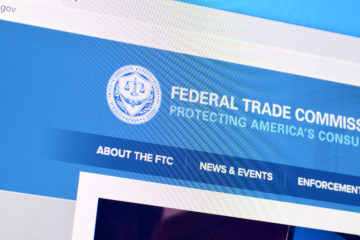Norm Singleton, Senior Fellow at the Market Institute, dissects the changing face of the Republican Party in a new, insightful article at Real Clear Markets. From the delicate balance between populism and ideology to the nuanced approach towards big tech, Singleton provides a clear perspective on the ongoing transformation within the GOP.
Singleton writes:
“Matt Stoller, Director of Research at the American Economic Liberties project, a progressive advocacy organization focused on opposing big business and expanding big government, has recently taken up one of the progressive intellectuals’ favorite pastimes: lecturing the right on how being a true conservative requires embracing a progressive economic agenda. Specifically, in his article “Where is the Republican Lina Kahn,” published at Compactmag.com, Stoller calls on conservatives to embrace the agenda of Federal Trade Commissioner Lina Khan. In other words, stop being conservatives and become Khanservatives.
Stoller says Khanservatism is the key to finishing the GOP’s transformation into a populist party. Stoller wants more Republicans to follow the lead of Missouri Senator Josh Hawley and work with Democrats to give Lina Khan and other federal bureaucrats more control over the American economy. Stoller is particularly critical of Republicans who attack big tech companies like Meta (parent company of Facebook and Instagram) and Alphabet (parent company of Google and YouTube), but do not support using antitrust to limit their growth, break them up, or tell them how to run their businesses.
Stoller blames this on the Republicans’ loyalty to large donors, even though big tech companies are more likely to donate to Democrats, and the fact that Republican leaders like Mitch McConnell are “sincere libertarians.” McConnell is no doubt as shocked as the rest of us to learn of his libertarianism. Stoller’s fundamental mistake is treating populism as a political ideology.
Populism is actually not an ideology but a strategy of appealing to the people by explaining how the current system enriches the elites and proposes an alternative benefiting the “common people.” Populism thus can be used to advance libertarianism just as easily as it can be used to advance progressivism.
Libertarian populism is based on the idea that big government serves the powerful and the wealthy at the expense of the average citizen. Libertarian populists emphasize issues like how war benefits the military-industrial complex, big bank bailouts, and the history of antitrust, as exposed by revisionists of both the left and right as a tool to punish businesses disfavored by those holding power at the moment. Instead of punishing big tech with new laws and regulations, which would raise the costs and diminish the quality of social media and online commerce, libertarian populism focuses on the close relationship between big tech companies and the government.
For example, much of the online censorship that conservatives decry is a result of the close relationship between big tech and big government. As revealed in emails between members of the Biden administration and tech company employees, many of the most egregious examples of online censorship were done at the ”request” of government officials. Therefore, the solution is not to give government more power over these companies, but to separate tech and state.
Senator Rand Paul and Ohio Representative Jim Jordan have introduced The Protecting Speech from Government Interference Act. This bill forbids any employee of the federal government or a federal contractor from taking any action abridging any American’s first amendment rights. Anyone who violates this law is subject to fines of at least $10,000, demotion, suspension, or termination and a lifetime ban on federal employment. Other ways of dealing with big tech censorship are boycotts of big tech companies. Many Americans are voting with their feet (or at least their keyboards), by leaving big tech’s social media platforms for other less censorious options.”


